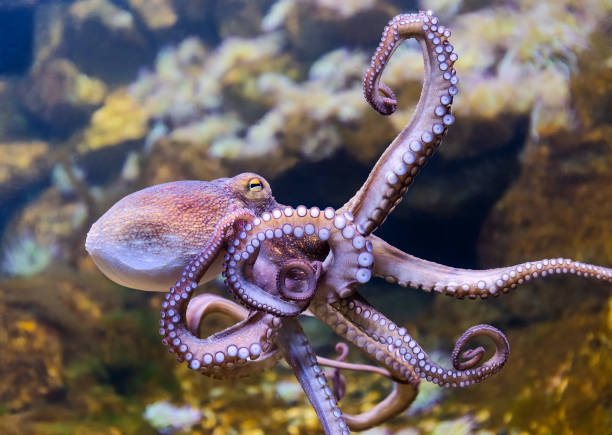Unraveling the Engaging World of Octopus Intelligence
The world beneath the ocean's surface is a mystery to many, brimming with fascinating species and unexplored territories. Among the ocean's diverse inhabitants, the octopus stands out for its extraordinary intelligence and intriguing behaviors. This article delves into the thrilling world of octopus cognition, exploring their surprising mental capabilities and how these findings are revolutionizing our understanding of animal intelligence.

The Octopus: A Deep-Sea Enigma
The octopus is a cephalopod, a group of marine animals known for their complex nervous systems. Octopuses have been a subject of interest for centuries, with ancient cultures attributing mystical powers to them. However, it wasn’t until the 20th century that scientists began to uncover the true extent of their cognitive abilities.
Intelligence Unveiled: Research Revelations
Recent studies have revealed that octopuses possess a range of cognitive abilities typically associated with higher mammals. They show problem-solving skills, are capable of using tools, and can even escape from secure tanks in laboratories. Moreover, certain species have been found to exhibit play behavior, a trait associated with advanced cognitive processing.
The Octopus Brain: A Different Approach to Intelligence
Unlike mammals, octopuses have a decentralized nervous system, with two-thirds of their neurons located in their arms. This results in a unique form of intelligence, where each arm can independently taste, touch, and manipulate objects.
The Camouflage Artist: Masters of Deception
One of the most impressive demonstrations of octopus intelligence is their ability to camouflage themselves. They can change not only their color but also skin texture to perfectly blend with their surroundings, which indicates a sophisticated understanding of their environment.
Implications and Future Research
The study of octopus intelligence is reshaping our understanding of animal cognition, challenging the traditional view that complex intelligence is a trait unique to vertebrates. Furthermore, octopuses are inspiring technological advancements, with their soft, flexible bodies serving as a model for the development of innovative robotics.
While the price of maintaining an octopus as a pet is relatively high, ranging from $30 to $1000 depending on species and size, their popularity in the pet market is steadily increasing. Their intelligence and unique behaviors have sparked a growing fascination among pet enthusiasts, leading to a potential new trend in exotic pet ownership.
In conclusion, the octopus is not only a fascinating creature but also a powerful testament to the extraordinary diversity of intelligence in the animal kingdom. As research continues, we can expect to uncover even more about these remarkable deep-sea dwellers, further challenging our understanding of what it means to be intelligent.




